For years, thousands of U.S. airmen and other troops have gathered with South Korean allies late each summer for a joint exercise to prepare for a possible outbreak of war with North Korea.
But this year, as part of the Trump administration’s efforts to find a path to persuade North Korea to give up its nuclear weapons peacefully, the August drill known as Ulchi Freedom Guardian has been called off.
President Trump agreed to suspend major military exercises — which he referred to as “war games” — with South Korea during the Singapore summit with North Korean dictator Kim Jong Un earlier in June.
And on June 18, the Pentagon announced that U.S. and South Korean planning for Ulchi Freedom Guardian — which was to involve 17,500 U.S. troops and occurred over two weeks last year — was off.
It remains to be seen whether the usual spring exercise, called Foal Eagle, will be held next year.
And it also remains to be seen what the consequences — particularly in regard to the military’s readiness — might be if these suspensions continue.
“Consistent with President Trump’s commitment, and in concert with our Republic of Korea ally, the United States military has suspended all planning for this August’s defensive ‘wargame,’ ” Pentagon press secretary Dana White said in a statement announcing Ulchi Freedom Guardian’s 2018 cancellation.
“We are still coordinating additional actions. No decisions on subsequent war games have been made.”
The Air Force has called Ulchi Freedom Guardian the largest computerized command-and-control exercise in the world, necessary to “increase the readiness and interoperability of South Korea and U.S. forces to defend South Korea if needed.”
The Pentagon’s press office said in a statement June 14 that the Defense Department supports the diplomatic effort with North Korea.
“Our alliances remain ironclad, and ensure peace and stability in the region,” Marine Lt. Col. Christopher Logan, a spokesman for the office of the Secretary of Defense, said in an email. “The presidential summit outcome is the first step along the path to the goal: Complete, verifiable and irreversible denuclearization of the Korean Peninsula and a free and open Indo-Pacific. We are working to fulfill the president’s guidance. The Department of Defense is aligned and continues to work with the White House to ensure we provide options that meet the President’s intent.”
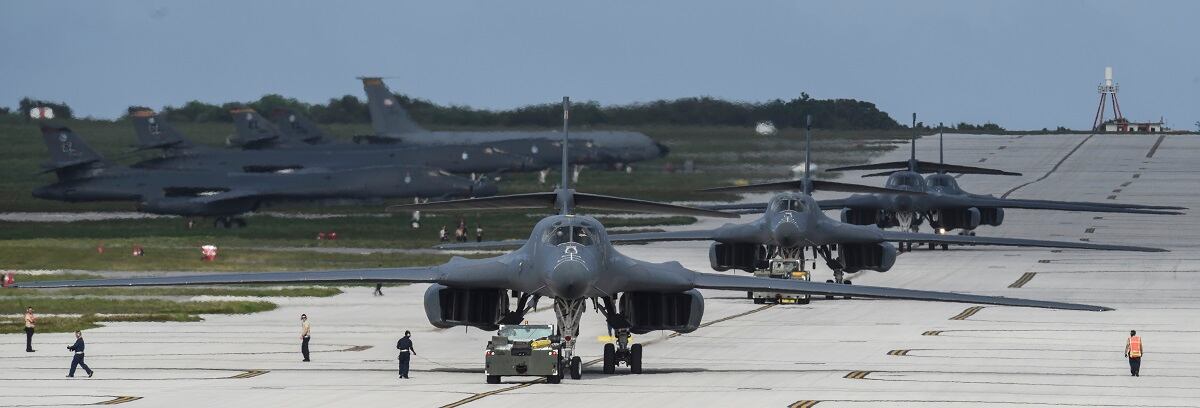
Not just about Korea
If the cancellation of this year’s Ulchi Freedom Guardian is a one-time occurrence and drills resume next spring, former Air Force officials say, forces could bounce back without losing much of a step.
Former Air Combat Command boss and retired Gen. Herbert “Hawk” Carlisle, who retired last year, said that if the administration’s negotiations can completely, verifiably and irreversibly rid the Korean peninsula of nuclear weapons, that will be a huge win.
But Carlisle noted that North Korea isn’t the only threat in the region — and isn’t the only reason to hold Foal Eagle and Ulchi Freedom Guardian.
The Pentagon’s new defense strategy stresses the need to counter superpowers such as China and Russia as part of the return to “great power competition.”
In particular, China’s increasing aggressiveness in the South China Sea is causing concern for military leaders.
“There’s a lot going on in the Pacific,” Carlisle said. “The Korean peninsula is clearly important, and it’s a key component. But that readiness and that training translates across the entire [area of operations], in relationships and understanding and operations and planning and execution. I don’t think people realize there’s so much more to it.”
And if the drills don’t resume, Carlisle said in a June 15 interview, important skills could atrophy –— and increase the risk if armed conflict were to break out in the Pacific region.
“It’s one less exercise where our young men and women get to practice in their field,” Carlisle said. “Full scale, large combined joint exercises are fairly rare, and it’s a skill set that you have to be able to do. So, the readiness for the line units is a factor.”
RELATED
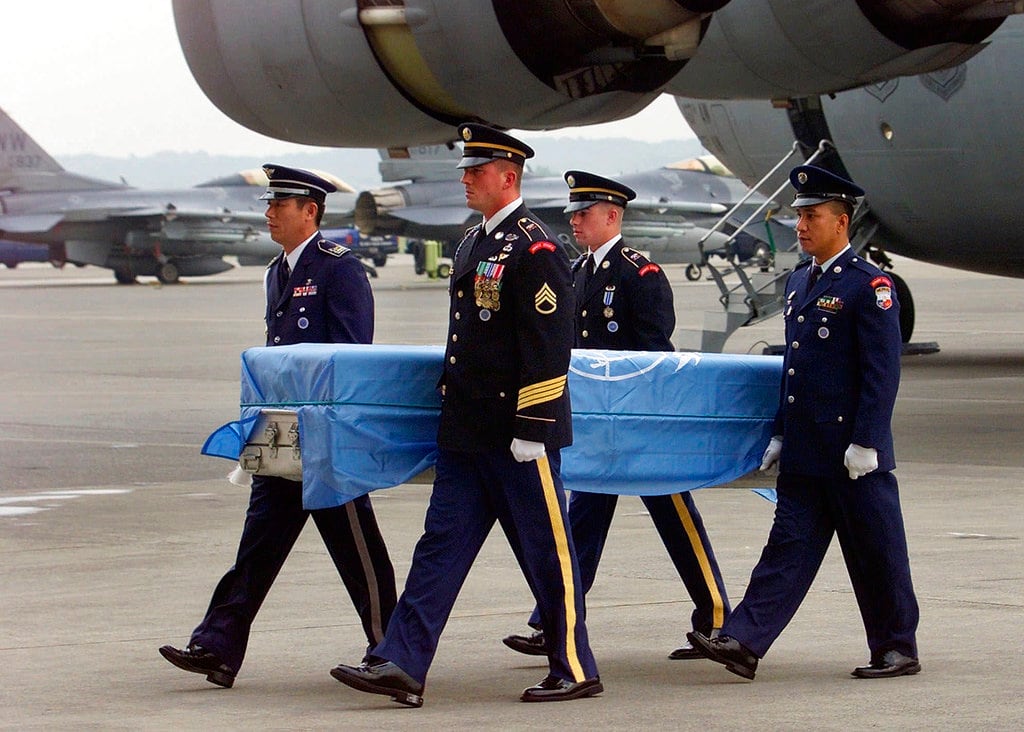
Virtually all aspects of Air Force capabilities get at least some workout during these exercises with South Korea, Carlisle said.
This includes everything from bombers stationed at Andersen Air Force Base in Guam to F-15 fighter squadrons at Kadena Air Base in Japan.
There also are F-16s at Misawa Air Base in Japan, command and control and intelligence, surveillance and reconnaissance aircraft such as the E-3 AWACS and RC-135 Rivet Joint based in Japan, combat search-and-rescue units, and others.
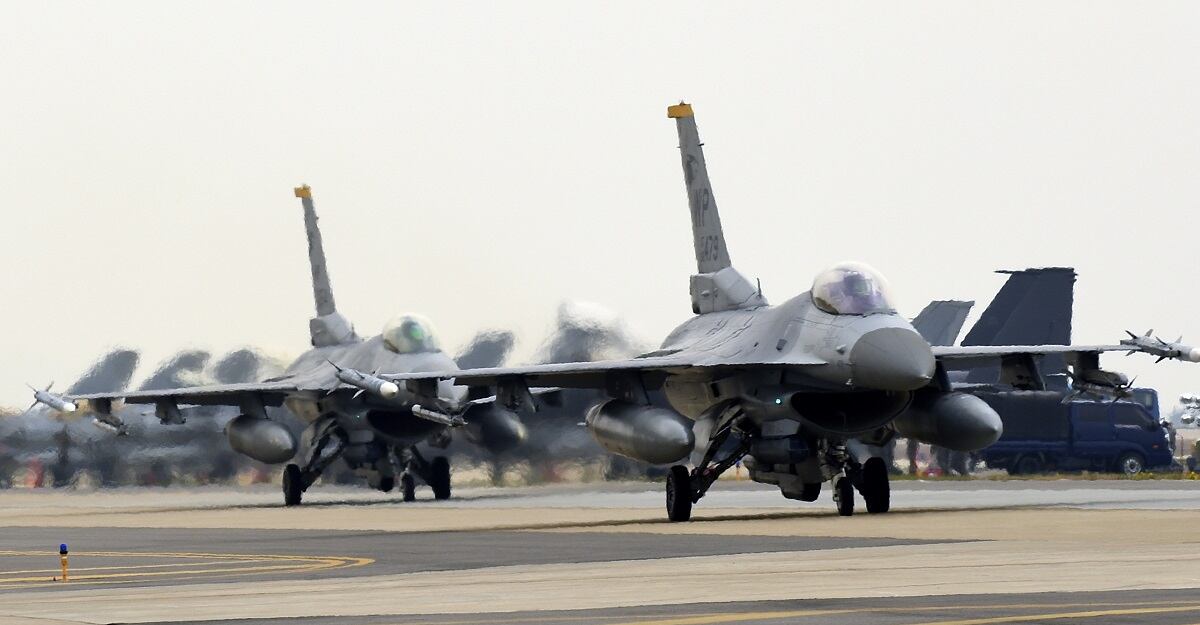
The exercises are structured to replicate what intelligence believes a war with North Korea would look like, if one were to break out.
But, Carlisle said, the skill sets practiced for those exercises have broader use elsewhere as well.
“When we train on the [peninsula], it translates across the entire AOR,” Carlisle said. “The command-and-control, the staff, the ISR, the execution of planning, working together with your friends and allies, both other nations as well as other [U.S.] services — that skill set … can translate anywhere in the Pacific.”
Practice, practice, practice
Airmen already stationed in the Pacific region won’t forget those skills overnight, Carlisle said.
But troops rotate in and out, in many cases on a yearly basis.
So, eventually, if things don’t change, air bases in the Pacific could find themselves with large swaths of newly-arrived troops who have never gone through a large-scale exercise with their South Korean counterparts.
“The reason we practice is because you don’t know what you don’t know,” Carlisle said. “The consequences [of long-term cancellation of the exercises] would be your operations would not be as effective, they would slow down, your grasp of what the adversary is potentially doing would not be as good. It’s just reps, you need to do those.”
Deborah Lee James, who was the Air Force secretary during the Obama administration, is concerned about the potential consequences of skills lost as a result of the drills’ cancellations.
“Military commanders will tell you that [if you have] less practice, and then you send your people into a real, honest-to-God hot war, more people will get killed, more aircraft will be shot down, there will be more destruction and more loss of life,” James said.
“That’s the whole purpose of having these exercises. There’s data for years, showing that those who have gone through Red Flags are much more prepared to then go into a real-world situation, because they’ve seen it, they’ve done it in a simulated way before they go up against the real thing.”
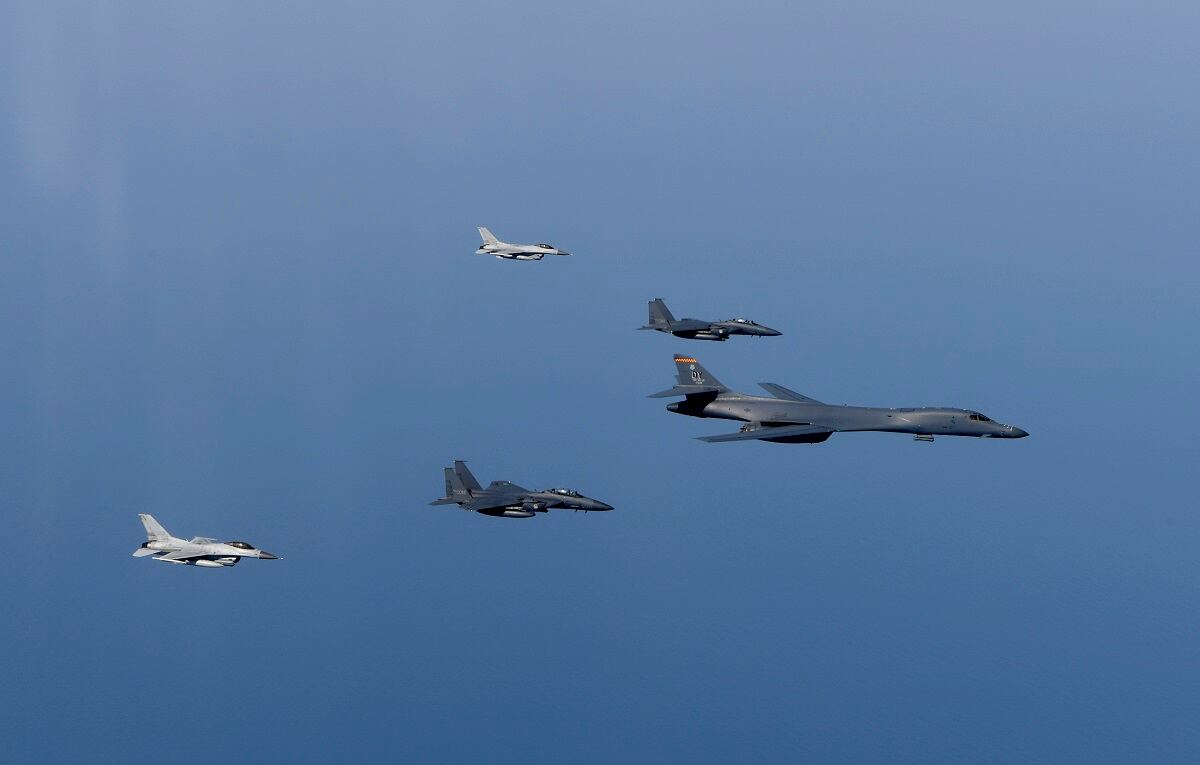
Training with partners
It’s not just important for U.S. forces to get practice, James said.
These exercises are important to make sure South Korean allies get their practice as well — and that U.S. forces are used to working alongside their counterparts and synchronized if a conflict on the peninsula were to erupt.
“It’s pretty complex. It’s not like riding a bicycle … [where] you could not ride for 20 years, and then get back on and do the basics,” James said. “You have to practice it pretty regularly.”
Carlisle predicted that U.S. Indo-Pacific Command and Pacific Air Forces will likely find some way to make up for the loss of the South Korean exercises.
That could mean beefing up smaller-scale training exercises elsewhere in the region, he said.
“We’re going to find a way to train,” Carlisle said. “It just may not be in the Korean peninsula. I’m sure they’re thinking about that right now.”
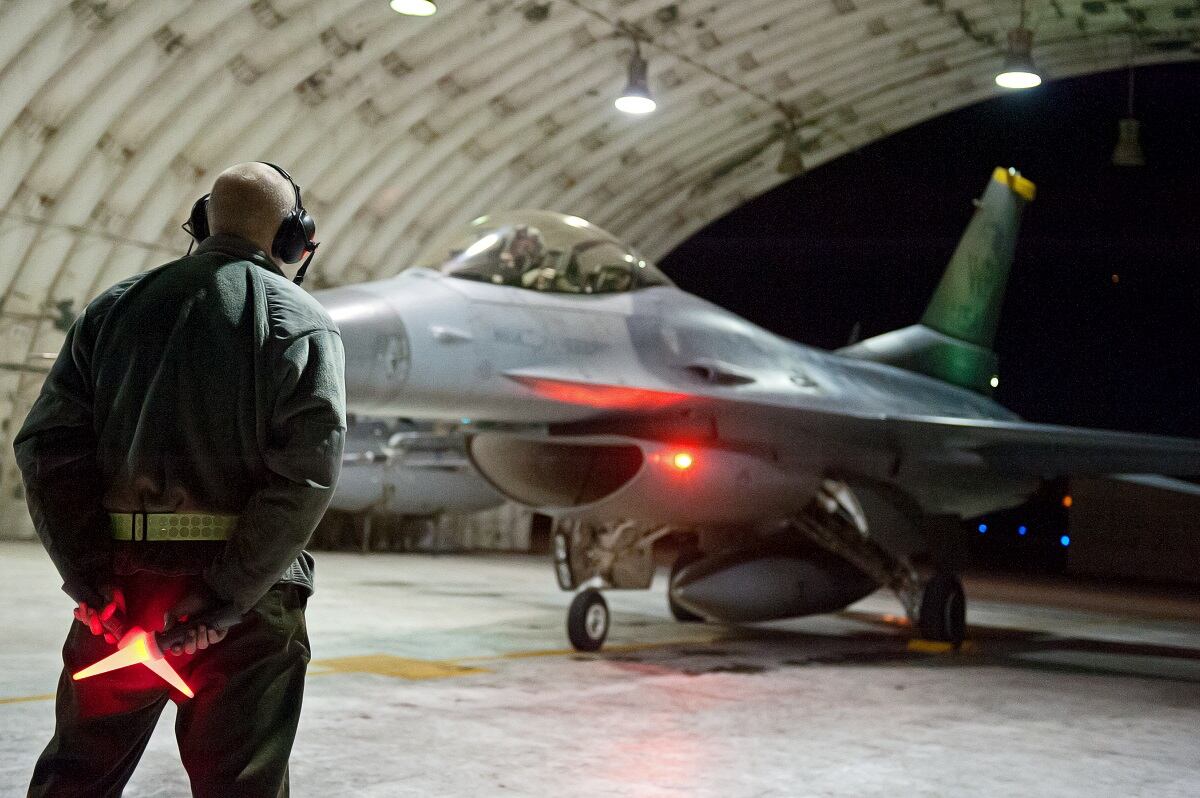
Exercises in the Korean peninsula usually include a mixture of live-fire weapons releases at bombing ranges, releases of inert “dummy” weapons, or simulated weapons releases, Carlisle said.
The Air Force has ranges in Alaska that could fill in, he said, or the Air Force could use ranges elsewhere, such as Nellis Air Force Base in Nevada.
RELATED
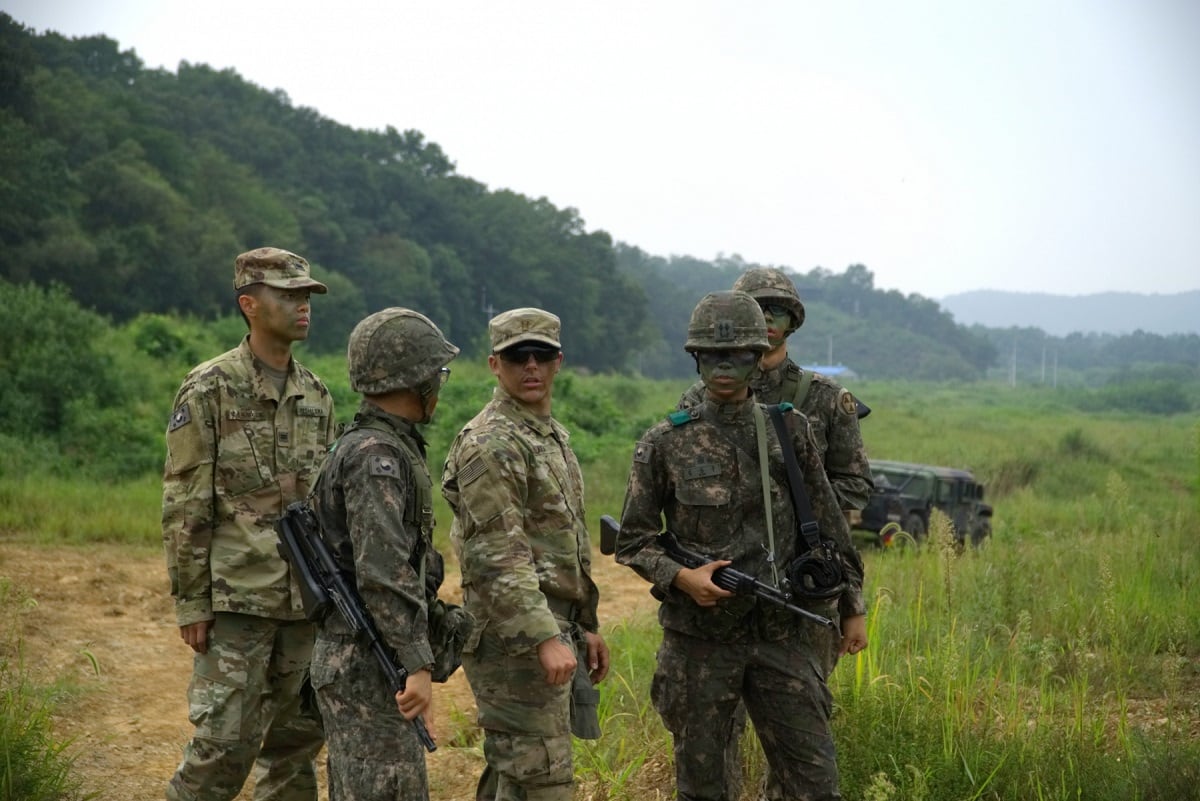
But James warned that exercises like Red Flag are booked at least a year in advance, and trying to bring South Korean allies in would be highly disruptive.
Beefing up other training exercises to make up for the lost Korean exercises could be theoretically possible, James said, but very difficult at best.
Trump cited the cost of the “war games” as a reason to cancel them.
But Carlisle said that the training has to be done somehow, and it’s unlikely that the military will save any money.
“The idea that there’s savings here, … we gotta train, and we gotta practice,” Carlisle said. “Is there a way we can shave some of the cost off? I don’t know. But you have to do it, regardless.
“You still have to take care of those people [by paying them], you probably have to move folks to a central location to conduct training, so you’re going to pay travel and per diem anyway. It just may not be in the Korean scenario.”
Stephen Losey is the air warfare reporter for Defense News. He previously covered leadership and personnel issues at Air Force Times, and the Pentagon, special operations and air warfare at Military.com. He has traveled to the Middle East to cover U.S. Air Force operations.





